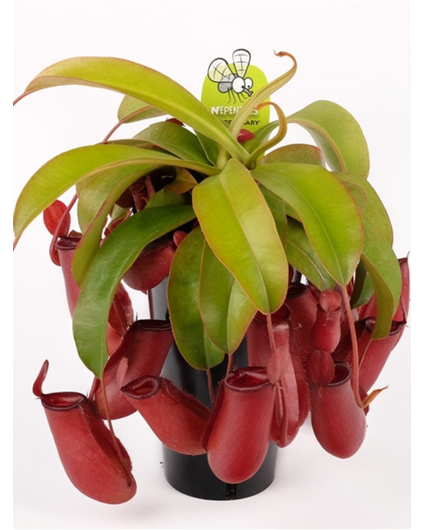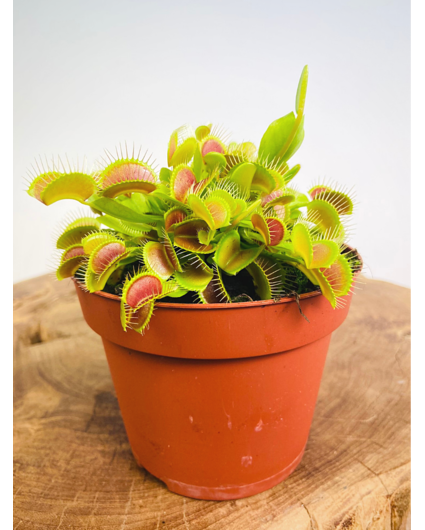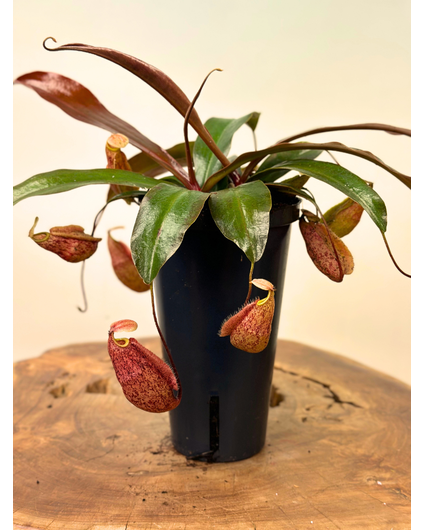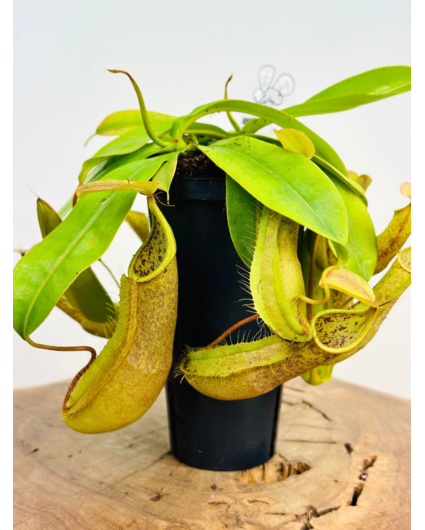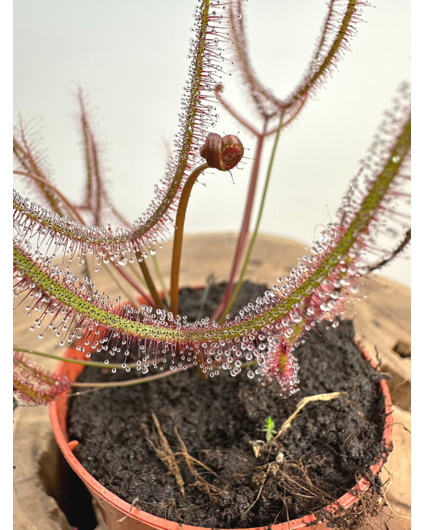All Carnivores
On this page you will find all the carnivorous plants (and species) we offer. Choose your favourite and order it easily online. You can enjoy your carnivorous plant within one working day.
Drosera "Madagascariensis" | ø 8,5 cm x ↕ 10 cm
INSECT-EATING PLANT
€ 9,99*
* Incl. tax Excl. Shipping costs
Pinguicula mix - 3 pieces
INSECT-EATING PLANT
€ 24,95*
* Incl. tax Excl. Shipping costs
Nepenthes "Bloody Mary" - large | ø 12 cm x ↕ 15 cm
INSECT-EATING PLANT
22% Save
€ 22,99 € 17,99*
* Incl. tax Excl. Shipping costs
Dionaea Muscipula - "Large" | ø 12 cm x ↕ 10 cm
INSECT-EATING PLANT
€ 13,99*
* Incl. tax Excl. Shipping costs
Nepenthes "Hookeriana" | ø 8,5 cm x ↕ 5 cm
INSECT-EATING PLANT
8% Save
€ 11,99 € 10,99*
* Incl. tax Excl. Shipping costs
Sundew mix - three pieces
INSECT-EATING PLANT
7% Save
€ 26,99 € 24,99*
* Incl. tax Excl. Shipping costs
Sarracenia "Leucophylla" - large | ø 12 cm x ↕ 20-30 cm
INSECT-EATING PLANT
12% Save
€ 16,99 € 14,99*
* Incl. tax Excl. Shipping costs
Sarracenia "Leucophylla" - classic | ø 8,5 cm x ↕ 15 cm
INSECT-EATING PLANT
8% Save
€ 11,99 € 10,99*
* Incl. tax Excl. Shipping costs
Pinguicula "Aphrodite" | ø 8,5 cm x ↕ 10 cm
INSECT-EATING PLANT
€ 10,99*
* Incl. tax Excl. Shipping costs
Nepenthes "x Suki" - large | ø 12 cm x ↕ 15 cm
€ 17,99*
* Incl. tax Excl. Shipping costs
Nepenthes "Hispida"' - large | ø 12 cm x ↕ 20 cm
INSECT-EATING PLANT
€ 17,99*
* Incl. tax Excl. Shipping costs
Drosera "Binata" | ø 8,5 cm x ↕ 15 cm
INSECT-EATING PLANT
€ 9,99*
* Incl. tax Excl. Shipping costs
- 1500+ ratings
- Best quality: directly from nursury
- Shipped within in 1 working day
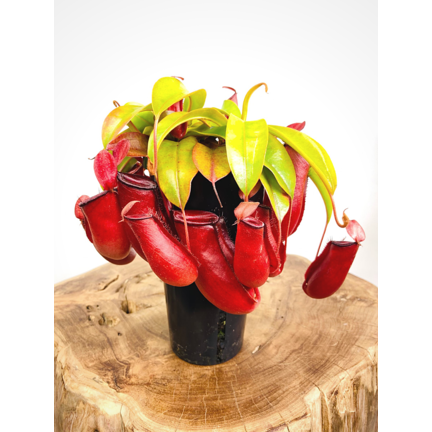
A fascinating world of natural hunters
Welcome to Carnivory.eu, the place for loversof carnivorous plants! In this category, you will find everything you want to know about the beautiful plants. Take a peek into the wonderful world of carnivorous plants, discover how they function and survive in their environment.
What are carnivorous plants?
Carnivorous plants are unique because they can capture and digest insects, to get important nutrients. They have evolved over the years to meet their nutritional needs so they can live in nutrient-poor soils, such as bogs and heaths.
Different species of carnivorous plants
There are about 500 different carnivorous plants with their own unique traps to catch their prey. Some of the best known carnivorous plant families are the venus flytrap, the sundew and the cup plant. Each of these families has its own way of catching and digesting prey.
The fascinating methods of capture
Carnivorous plants have evolved different techniques to capture their prey. Let's explore some of these methods:
Fly traps
The venus flytrap (Dionaea muscipula) is an iconic carnivorous plant that uses clap traps to catch insects. The leaves of this plant have tiny hairs that serve as triggers. When an insect touches these hairs, the trap claps shut at lightning speed and the prey is caught.
Sticky traps
Sundew (Drosera) use sticky traps to catch insects. The leaves of sundew are covered with a sticky substance that gives off a sweet smell. When an insect lands on the plant, it gets entangled in the sticky substance, after which the plant slowly folds its leaves around the prey and consumes it.
Cup traps or pitfall traps
Cup plants (Nepenthes), have hollow, cup-like traps filled with a sweet liquid. Insects are lured by the cup's scent and bright colours. Once inside, they slip on the smooth inner wall and fall into the liquid where they are digested.
Caring for carnivorous plants
Carnivorous plants are a challengefor any collection of plants. Because they require specific conditions, it is very important to know how to care for these plants. Here are some essential aspects of carnivorous plant care. Would you like to know everything about the care of carnivorous plants? Then read the page on care.
Water and humidity requirements
Carnivorous plants usually need high humidity and moist soil to thrive. Preferably use distilled, rain or osmosis water, as tap water may contain harmful substances that can damage the plants. Make sure your pot has good drainage to prevent root rot.
Light requirements
Most carnivorous plants need a lot of light to grow well and develop their trapping mechanisms. Your plants need at least 6 hours of sunlight a day, if that is not possible try using another light source such as an LED.
Nutrition
Since carnivorous plants get their nutrients from their prey, fertilisation is usually unnecessary. Supplementing with insects can be useful, but don't overdo it - too much feeding can damage the plants. It is important to respect the plant's natural cycle and not overfeed them.
Repotting and soil requirements
Carnivorous plants often have specific soil requirements. Many species thrive best in a mixture of peat and perlite or sand. We recommend repotting your carnivorous plants every two to three years to promote growth and ensure that the soil does not lack nutrients.
Carnivorous plants and their role in nature
Carnivorous plants are important in their habitats. They help control insects and provide shelter and food for other organisms, such as amphibians. Scientists better understand how carnivorous plants contribute to the health of their habitat by studying them.
At Carnivory.eu, we are passionateabout the world of carnivorous plants. We hope that by exploring our site and caring for your own carnivorous plants, you will become as fascinated by these wonders of nature as we are.




